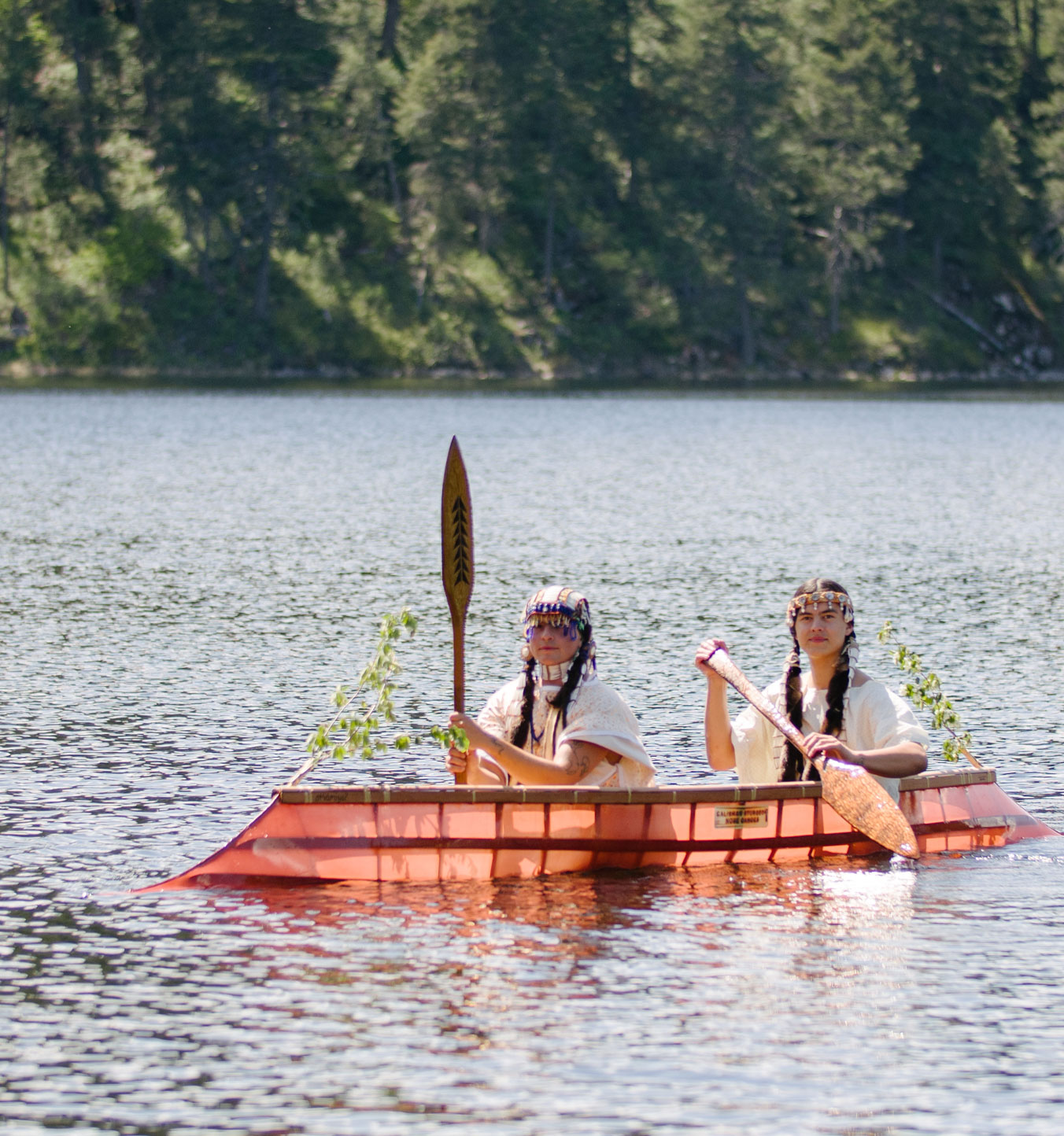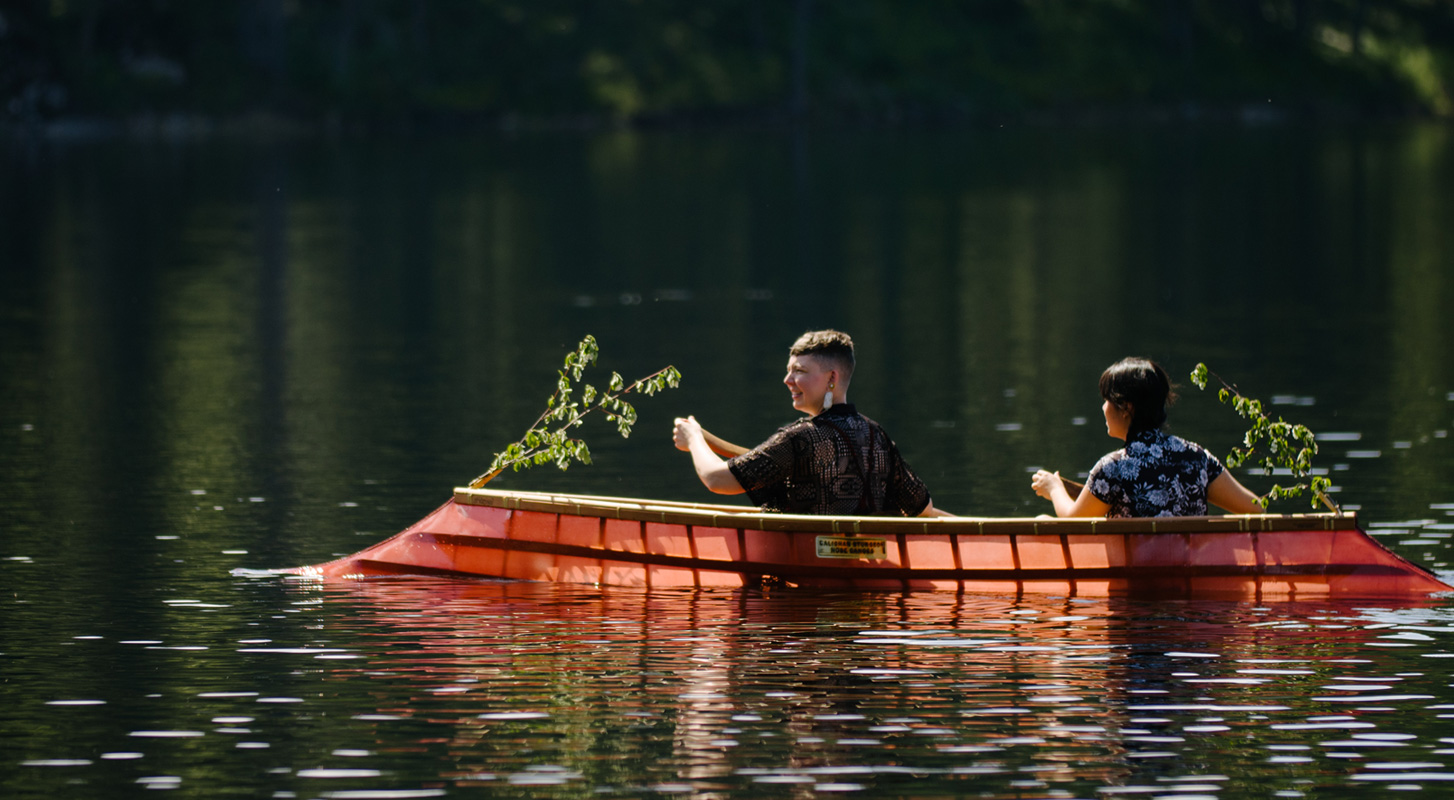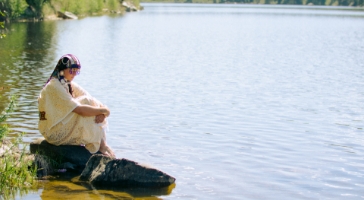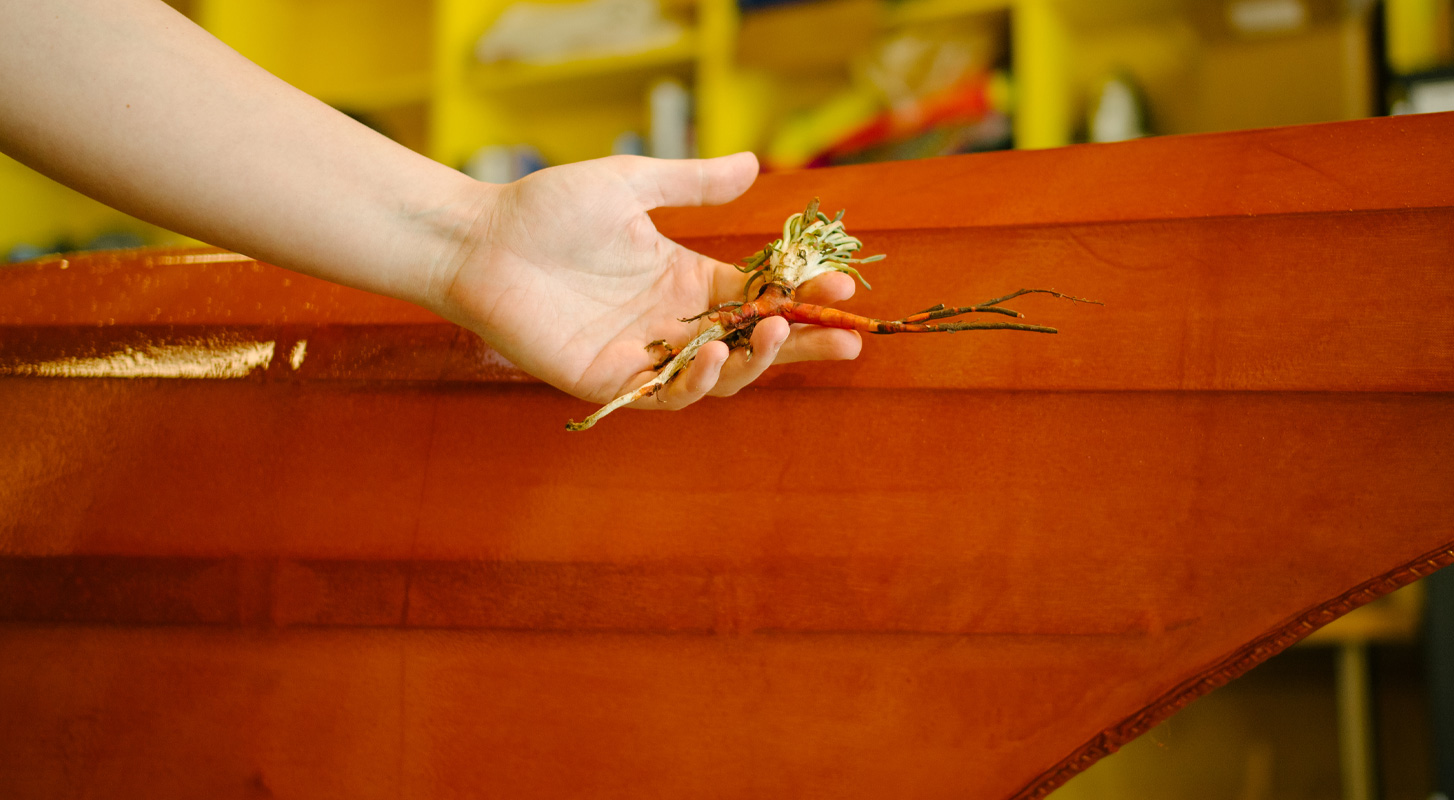TWO-SPIRIT IDENTITY
“This has always been there. All you’re doing is revealing it.”
Two-Spirit people in Washington are reclaiming their identities and traditional roles. With support from family and friends, they’re also protecting their own mental health.
Connection and culture help protect mental health.
Gathering together and connecting with culture are important ways Two-Spirit people are protecting their well-being. That can mean taking part in a naming ceremony, joining a drumming group, or learning about Two-Spirit ancestors. It might mean joining an online group of Two-Spirit people — or, like the regalia-makers, building community close to home.
Stories of connection
As a group of beaders and sewers prepared regalia for their Two-Spirit powwow, they connected with culture and tradition. They built bonds with one another and with loving relatives. (Diné filmmaker Evan Benally Atwood made the videos on this page about their work together, and about a Two-Spirit group learning canoe-skinning.)
Mental health means asking for help when you need it.
Besides connecting with culture and others, you can protect your mental health as a Two-Spirit person by:
- Prioritizing positive relationships with supportive friends and relatives.
- Seeking out inclusive, supportive health care providers.
- Asking for support when you need it.
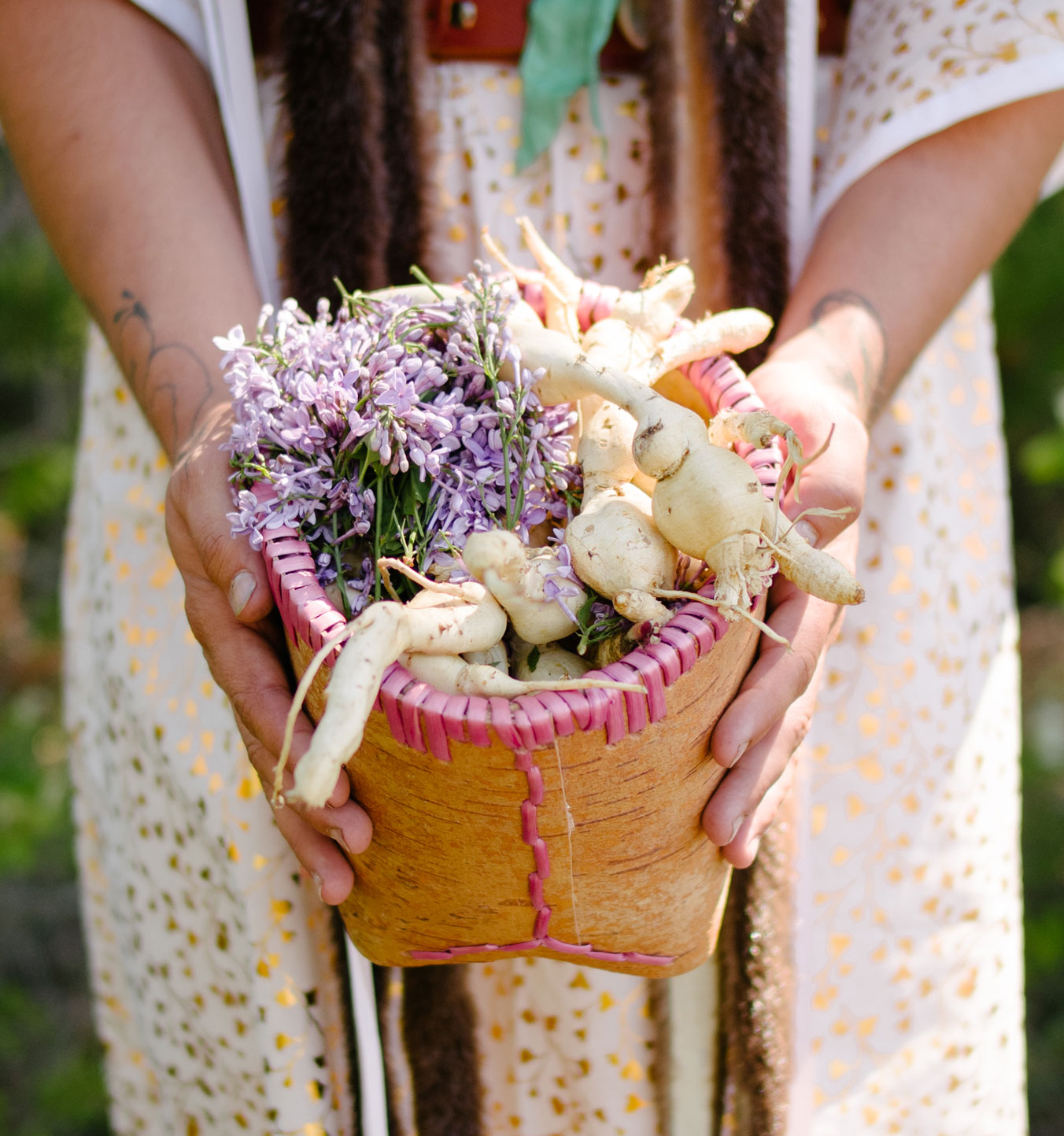
Other ways to ask for help.
Supportive families and communities reduce suicide risk.
Two-Spirit people and identities have existed far longer than “Two-Spirit.” This broad term reflects hundreds of diverse identities related to gender and sexuality within Indigenous cultures. It’s also a stand-in for hundreds of words and phrases used in tribal languages for these identities.
Two-Spirit is Native.
Before colonization, Two-Spirit people were accepted, supported and honored in most tribes. Many held sacred or ceremonial roles such as counselors, healers, pipe carriers or visionaries. Others were great warriors, dreamers, medicine people or spiritual advisors.
Now Two-Spirit people are reclaiming their identities and reviving traditional roles.
Two-Spirit individuals know best what being Two-Spirit means to them. Some people also use the words gay, lesbian, bisexual or trans to describe their sexual orientation or gender. Some do not. But being Two-Spirit is not the same as being gay or trans — it’s a way (or many ways) of reclaiming Native community roles and reconnecting with traditional, precolonial languages, values, responsibilities, lifeways and cultures that have existed for millennia.
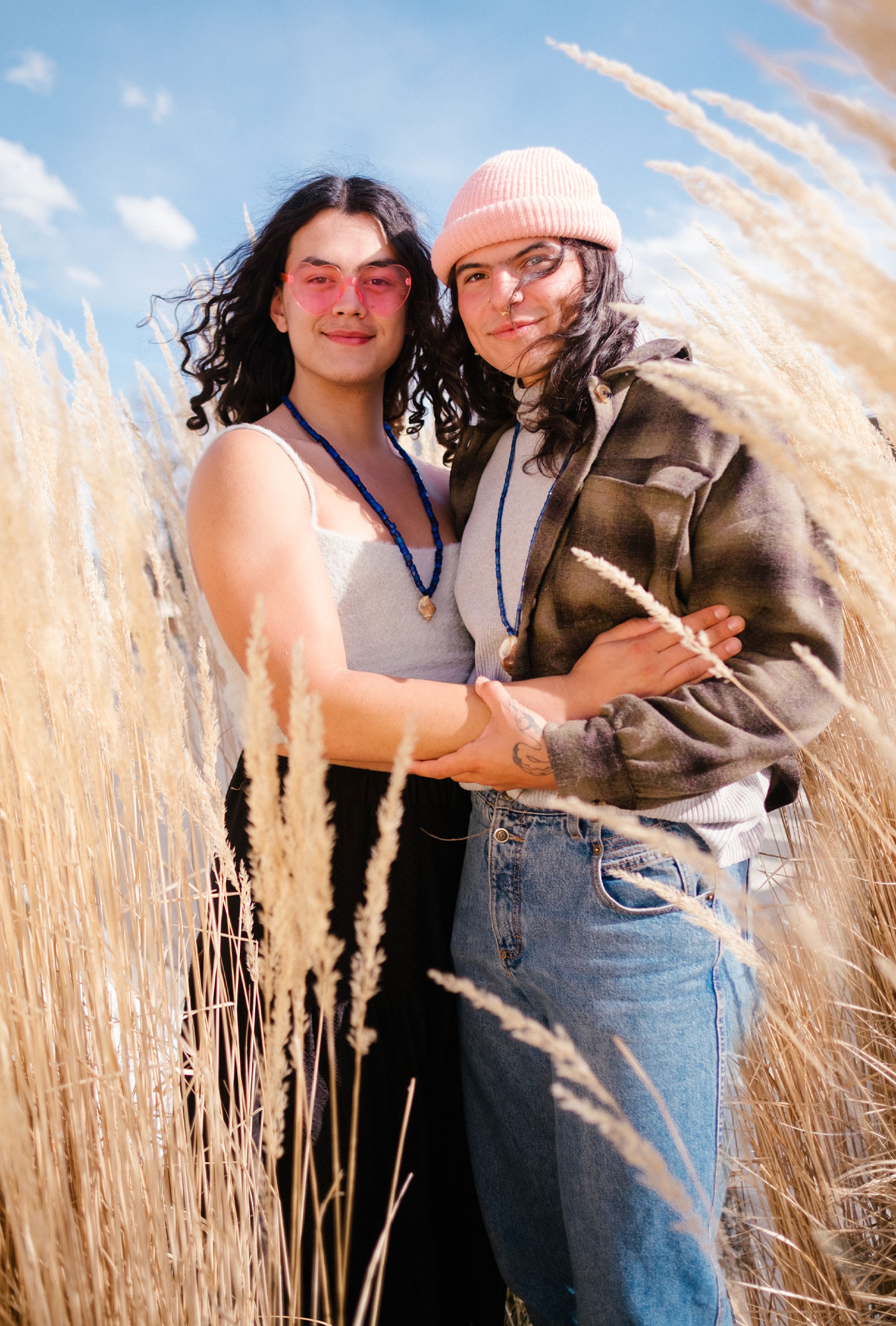
Honoring Two-Spirit identities.
Two-Spirit people can face discrimination or abuse. But friends, relatives, tribes and communities can support Two-Spirit friends’ and relatives’ mental health. Strong, accepting relationships help protect Two-Spirit people. So do safe spaces and respectful communities.
Stand up for your Two-Spirit relatives. Talk with others about discrimination and about treating Two-Spirit people with respect. When you hear something derogatory, say something — stand up for your Two-Spirit relatives.
Learn the signs of suicide and how to help.
You can’t always tell when people are thinking about suicide. But most people show some sign. Learn the warning signs to watch for in others or yourself, so you can get support from people trained to help.
Support makes a big difference
Sarah, a mother and a member of the Cowlitz Indian Tribe, created a piece of artwork in honor of her Two-Spirit child, Corbin. In this video, they share their experiences, including the important role of community support to Corbin’s healing.
Ask, listen, and connect people with support.
When a friend or family member is struggling, we can talk with them and help them get the help they need. Here’s how to start the conversation. When you’re talking with your Two-Spirit relative:
- Use their correct name (their chosen name). This is one way to show respect and understanding.
- Use their correct pronouns. If you’re not sure what their pronouns are, ask them.
- Use your ears and heart. Listening can be lifesaving.
